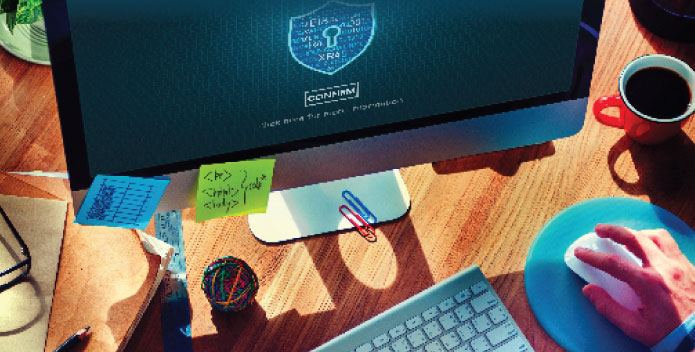
Is it Time to Re-think Home Working Security
Published: 19 July 2024
Working from home is now a normal part of daily life – in a survey half of those questioned said they worked from home either all or some of the time¹.
What started as a pandemic necessity has become ingrained in working culture and, whilst it brings flexibility and a change of environment, it can have significant implications for IT security.
In our recent ‘IT Trends Survey’ we were surprised to find that 47% said they felt more secure working from home, compared to 34% who believed their place of work was a safer IT environment.
Commented Adam: “We were quite shocked by these statistics. Whilst your own home can feel private and secure because you can keep physical intruders out, what people don’t realise is that, from an IT perspective, it can be anything but safe. People often don’t have the same security systems at home as they do at work, so it makes an ideal breeding ground for cyber criminals to work their destructive magic.”
We take a look at some of these IT issues and give pointers as to how you can improve your home working security.
- Work networks will normally have a sophisticated firewall that examines traffic in and out of the internet and will help prevent malicious software and connections. This is not always the case with a home network, which has not been set up with the same IT protocols as your work environment.
- Take care with personal email accounts that may lack the more advanced threat protection, phishing and security filtering that you have on your work accounts.
- Beware of unsolicited calls, emails and text messages purporting to be from IT providers, software companies or your internet provider offering to help with problems or performance issues. In the work environment you often have dedicated IT support channels, but when you’re working from home you can be an easy target for these types of fraudulent approaches.
- Always make sure that you turn on security features on your home or personal computers, including software firewalls and internet browser protections. And it goes without saying that you should always use strong passwords.
- Carry out a full virus scan and software update/patch check periodically – this is often automated in a work environment but may need to be initiated manually on your home equipment.
- Whilst not a security matter, it’s worth remembering that your connectivity may be impacted if you’re working from home and there are several people using your home network / internet connection. Home routers are not as sophisticated at managing and balancing the distribution of internet bandwidth, which is why you can have ‘go slow’ patches when working from home.
¹ YouGov November 2023
REPORT AN INCIDENT
To access the Lifeline IT support portal and log an incident, login below.
STAY UPDATED
Sign up to our newsletter for informative news about the IT and technology landscape
Offices
Head Office
Borehamwood, Herts, WD6 2BT
European Office
Regional Office



Copyright © 2026 Lifeline IT Solutions Ltd. All rights reserved.|Website Design & Development by Viridian Partnership
